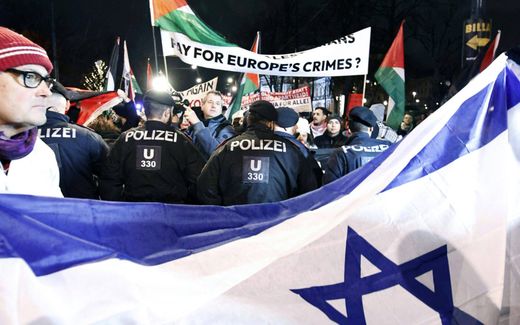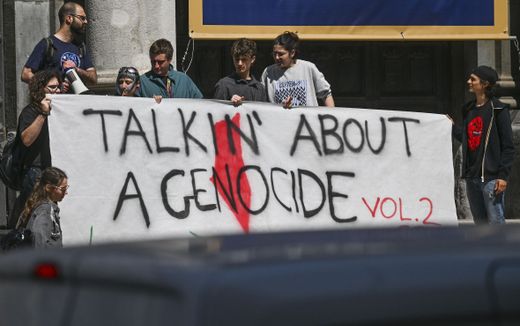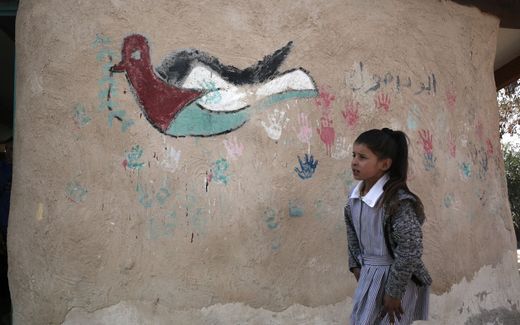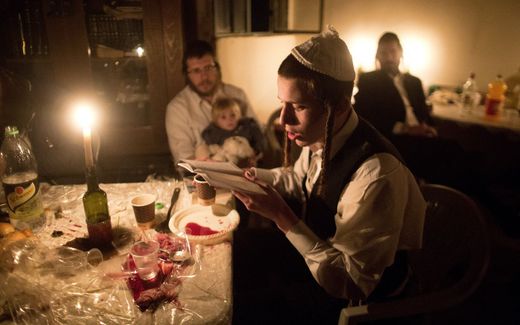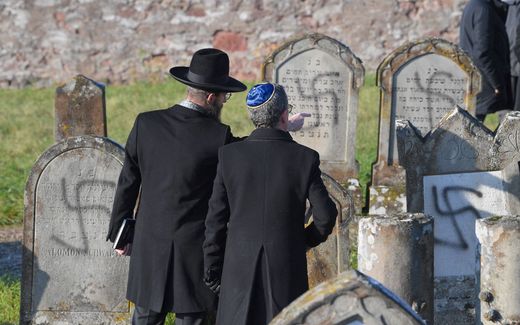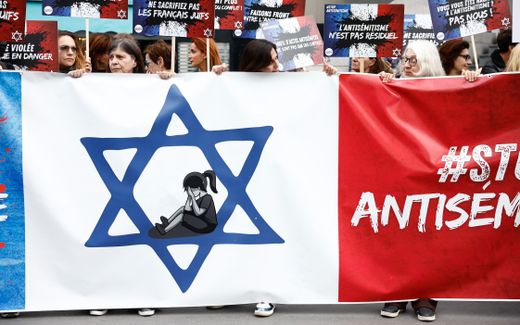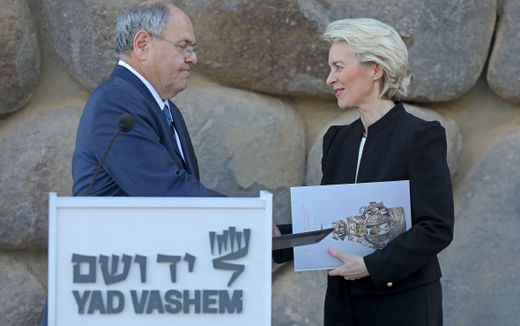How a thunderstorm led to the renovation of a Jewish cemetery in Lithuania
04-09-2024
Eastern Europe
L. Vogelaar, RD
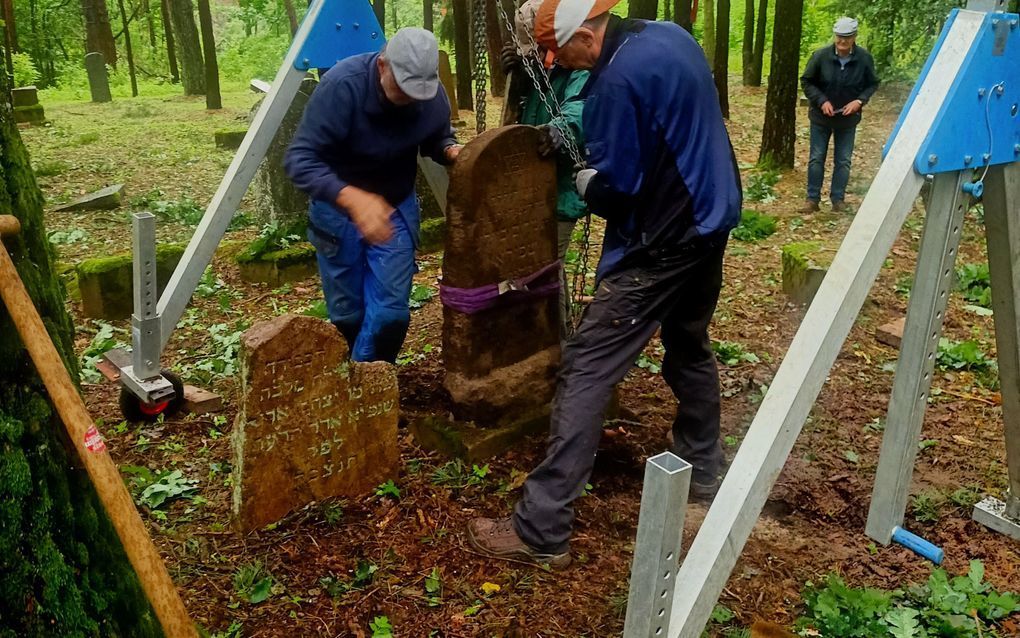
In four days, a group of Dutch people renovated a Jewish cemetery in Lithuania. Photo Stichting Boete en Verzoening
Eastern Europe
In four days, a group of Dutch people refurbished a Jewish cemetery in Lithuania. To the amazement of Jewish Lithuanians. And not without opposition.
The project was an initiative of the Stichting Boete en Verzoening (Foundation for Penance and Reconciliation), which has now devoted itself for half a century already to the maintenance of Jewish cemeteries, particularly in the Netherlands. When Rev. C.E. Lavooij retired as Reformed pastor of Vaassen in March last year, he was soon asked to join the foundation board. They knew him: more than 20 years earlier, he had spent a week helping to refurbish a cemetery in the Dutch province of Groningen.
Rev. Lavooij had been on the board for a month when a woman approached the foundation with a question about Lithuania. The foundation referred her to the pastor because it was –wrongly– thought that he had contacts in that country.
Heritage
The woman had spoken to Rabbi Baron in Lithuania. "Their contact came about in a rather unusual way. During a group tour of the Baltic states, she was reading her Bible in the Lithuanian capital, Vilnius. However, a thunderstorm erupted, so she ran down the hill into the first house whose door was open. There, she met the rabbi. He told her how he was working to preserve his country's Jewish heritage."

While Latvia and Estonia counted few Jews, Lithuania had a large Jewish community before the outbreak of World War II. Vilnius was called the Jerusalem of the north. However, of the 220,000 Jews in the country, only 8,000 remained after the war. The others had been killed by the Germans. Lithuanians took part in that, which, according to Rev. Lavooij, explains why not everyone is enthusiastic about Rabbi Baron's efforts to keep alive the memory of his country's Jewish past and restore Jewish cemeteries. "Especially if that would cost money", he says.
Rain
After consulting with the rabbi, the foundation decided to refurbish one of the 250 Jewish cemeteries in the Eastern European country. "As a small start. Most of the cemeteries are badly neglected."
Eleven Dutch people travelled to Lithuania: six people to work at the cemetery, a married couple for catering, a Jewish filmmaker with his wife to make a documentary, and Rev. Lavooij as a tour guide and "for PR". In Kaunas –in terms of population the second largest city in Lithuania– they attended a service of the International Reformed Church.
The working week did not seem to start without obstacles. "I received a weather alert from various sources: storm coming with 20-25 millimetres of rain within 24 hours, later upgraded to 50-100 millimetres. We went up the hill anyway. On that first day, 11 headstones were erected. It seemed as if the rain fell to the left of the hill and to the right of it but hardly on it. It was as if a path through the Red Sea had been carved for us. The wind hardly bothered us either. During the opening of the day, we had asked for God's help. In the Netherlands, a prayer group had been formed around our project."
Discovery
The workers had brought a hoisting crane from the Netherlands. Using a pulley, the tombstones were hoisted upright. Then, they were anchored in cement and cleaned. When Rev. Lavooij saw the raising of the stones, he was reminded of the resurrection from the dead. "In any case, in a Jewish cemetery, it is true that they must not be cleared because of the hope of the resurrection of the dead at the end of time."

Some tombstones were covered with moss; others had disappeared under a layer of soil. After four days, nearly 60 tombstones had been put upright, and the cemetery looked neat again. "The rabbi couldn't believe his eyes."
The Dutch discovered remnants of two buildings. "That was also because a week earlier, professors and students from the US state of Wisconsin had investigated the deeper ground layers. That group consisted of experts with great knowledge of underground research; they help Israel track down Hamas tunnels, for example. They now discovered that the cemetery, which lies on a slope, had been larger than was thought."
Recognition
Halfway through the days when the Dutch were working there, Rabbi Baron held a conference on his plans to raise awareness of Lithuania's Jewish heritage. The participants –from several countries– were also able to take a look at the restoration work the Penance and Reconciliation Foundation was working on.
The ambassadors of the Netherlands and Japan also showed interest. This has a historical background: the cemetery is located in the village of Vilkija, not far from Kaunas. In that city of Kaunas, Dutch Philips director Jan Zwartendijk and Japanese consul Chiune Sugihara rescued thousands of Lithuanian, Polish and German Jews in a few weeks during the war by issuing them visas to keep them out of the hands of the Nazis. Both human rescuers were reprimanded by their own governments after the war for breaking the rules and only belatedly –and posthumously– received the recognition they deserved.
Past
In mid-September, Rev. Lavooij and his wife will go to Lithuania again to speak with the Dutch ambassador and to see how the cemetery looks now, including an information board.
More than Western Europe, the Baltic states live under the threat of war with Russia, says the pastor from Appingedam. "Russia's problem is that it has not processed its past. We are trying to show how you can deal with the past."
This article was translated by CNE.news and published by the Dutch daily Reformatorisch Dagblad on August 26,2024
Related Articles

